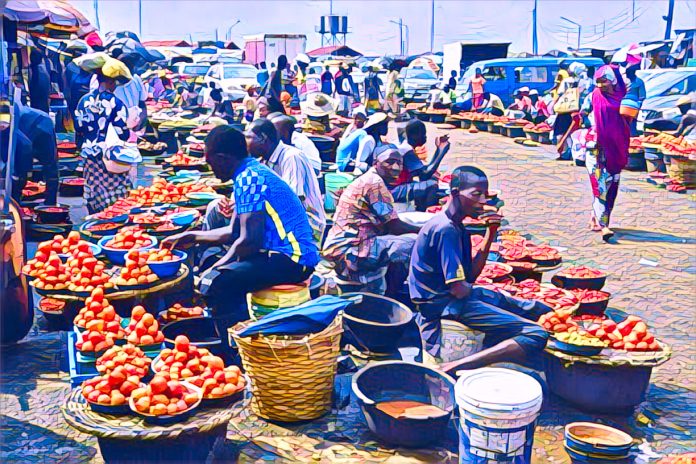KEY POINTS
-
Nigeria’s inflation crisis is enriching politically connected importers, wholesalers, and landlords who exploit market conditions and weak regulation.
-
Practices like price hoarding, forex abuse, and artificial scarcity are driving inequality as the cost of living skyrockets for everyday citizens.
-
Experts warn of a growing wealth gap and call for urgent government intervention to address silent profiteering and restore market fairness.
While inflation has devastated households and small businesses across the country, it has simultaneously widened economic inequality—creating what economists now call “inflation millionaires.”
As millions of Nigerians battle rising food prices, job insecurity, and dwindling purchasing power, a select group of individuals and companies are quietly reaping record profits.
The current inflation crisis, marked by a 31.2% year-on-year rate in April 2025 according to the National Bureau of Statistics (NBS), has pushed staples like rice, yam, and cooking oil beyond the reach of average families. But for those who control supply chains, import licenses, and market monopolies, the crisis is a business opportunity rather than a burden.
“The cost of a 50kg bag of rice has gone from ₦35,000 to over ₦70,000 in just 18 months,” said Ireti Adefolu, a Lagos-based market analyst. “Yet, some wholesalers and middlemen have doubled or even tripled their margins under the guise of scarcity.”
Price manipulation, hoarding, and inflation behind closed doors
Behind the scenes, traders, distributors, and politically connected importers have been accused of stockpiling goods, creating artificial scarcity, and taking advantage of the weakening naira to inflate prices well beyond global commodity rates.
According to a leaked report from the Nigerian Customs Service, over 60% of food items imported in the first quarter of 2025 were acquired at discounted rates through special forex access schemes—yet these items were sold at black-market rates. The markup between wholesale and retail prices for many imported goods has now reached historic highs.
“You have people importing wheat or oil at subsidised rates and reselling them at three times the price,” said Abdulrahman Salisu, a trade union spokesperson. “This isn’t just inflation. It’s legalized extortion.”
Fuel marketers have also come under scrutiny. With deregulation removing fuel subsidies, pump prices now fluctuate between ₦850 and ₦940 per litre across the country. Yet, analysis by energy researchers at the University of Port Harcourt reveals that some marketers are manipulating supply cycles to create price spikes in certain regions—only to flood the market once prices rise.
Meanwhile, landlords and real estate developers in urban areas like Abuja and Lagos have adjusted rents upwards by as much as 50%, citing rising material costs. However, data from building material suppliers shows that profit margins on cement, rods, and tiles have increased disproportionately, benefitting a small circle of construction oligarchs with ties to government contracts.
“What we’re witnessing is a form of silent profiteering,” said Professor Nkem Okoye, a political economist at the University of Nigeria, Nsukka. “Inflation is supposed to be a systemic crisis, but here it is also a mechanism of wealth redistribution—from the poor to the powerful.”
One Lagos-based logistics company saw its quarterly revenue grow by 170% in 2024 due to surcharges imposed on consumers for ‘inflation management.’ Many of these surcharges were unregulated and poorly disclosed, yet widely adopted in e-commerce, delivery, and ride-hailing sectors.
The lack of regulatory oversight and delayed government intervention have enabled this quiet transfer of wealth. While government palliatives such as ₦25,000 monthly support payments for low-income families have been rolled out, critics argue they do little to counterbalance the structural profiteering embedded in supply chains and markets.
Civil society groups are now demanding investigations into price manipulation practices, subsidy access abuse, and profiteering by politically connected firms. “The government must act not just against poverty, but against the profiteers who are thriving on poverty,” said Fatima Yusuf, coordinator of the People’s Anti-Inflation Alliance.
Yet enforcement remains weak. Institutions like the Federal Competition and Consumer Protection Commission (FCCPC) have limited capacity, and allegations of political shielding often derail accountability efforts.
For now, the beneficiaries of Nigeria’s inflation continue to operate largely in silence, hidden behind the façade of market dynamics, while ordinary citizens grow poorer by the day.



